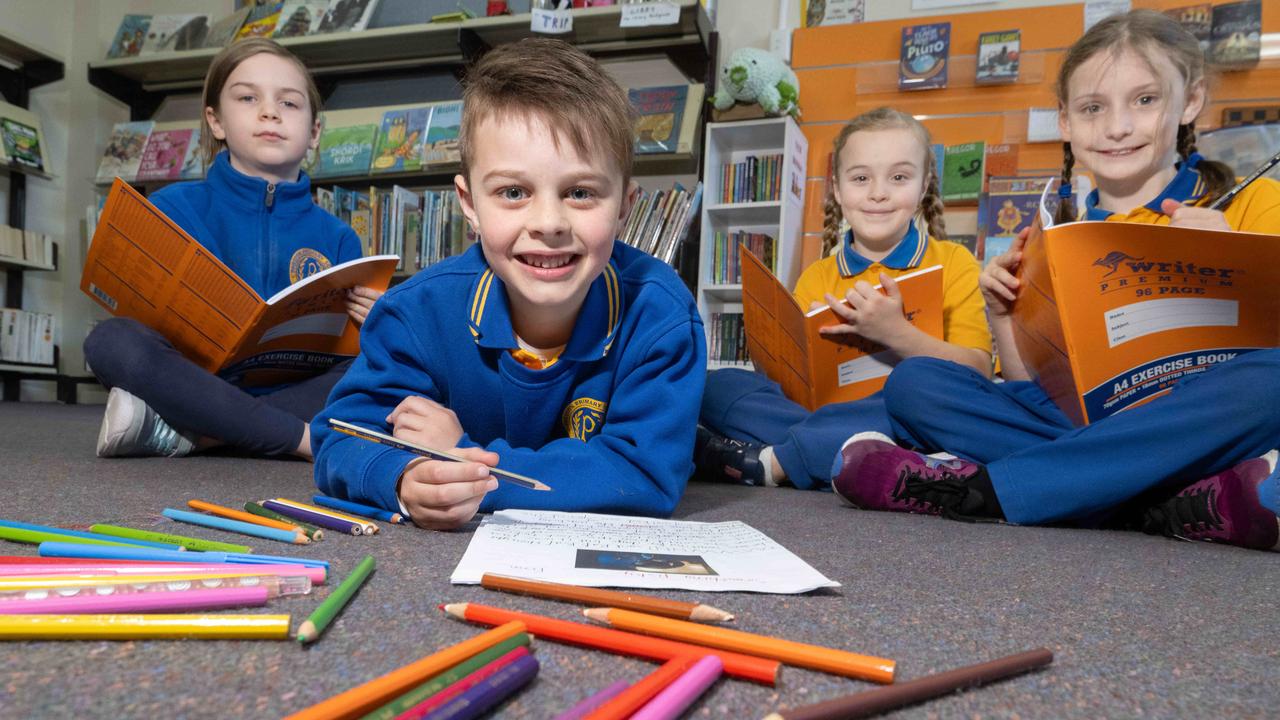How family stories bridge the generation gap and fire up fiction
There’s still two days to enter the Kids News 2022 Short Story Competition – prime time to forage through your family’s stories and give your favourite a fictional makeover before entries close
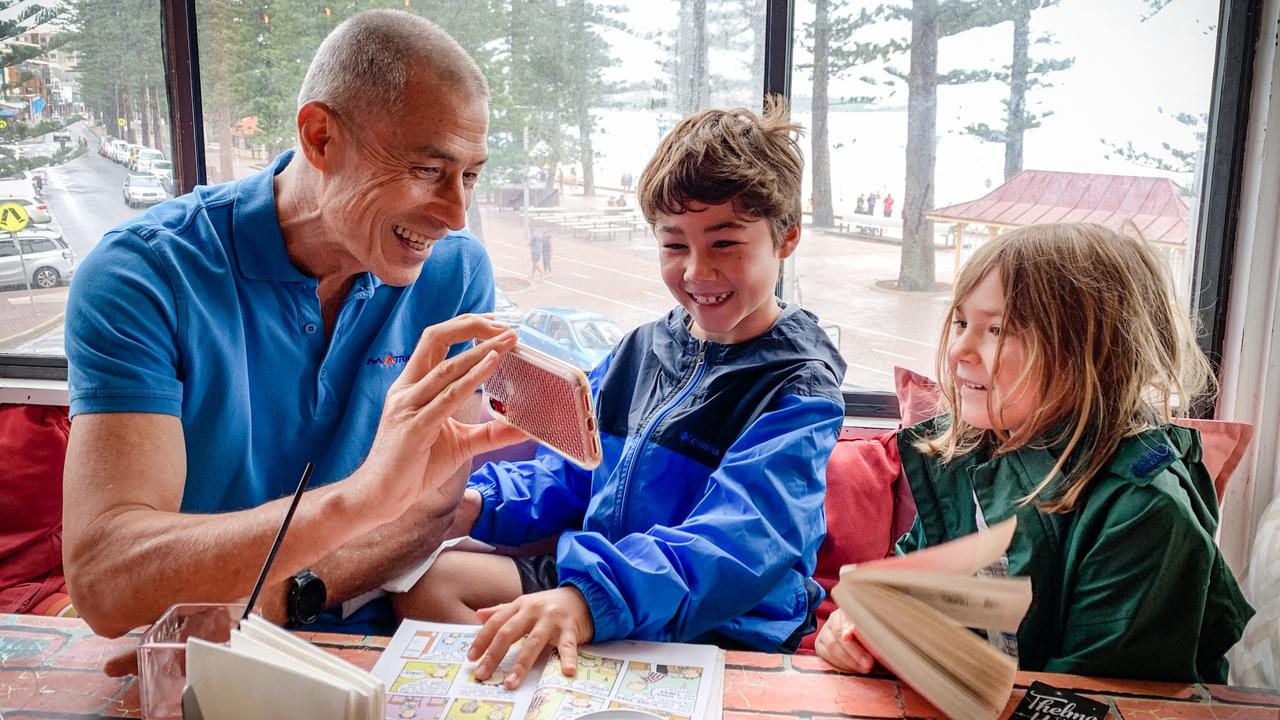
READING LEVEL: GREEN
Telling family stories can bridge any age gap and create life-changing closeness across generations. And experts say Australia’s ageing population is a huge opportunity to bring “grandfriends” into childcare and education settings for multi-gen storytelling.
Griffith University Emeritus Professor Anneke Fitzgerald said bodies and brains of all ages benefit when young and old come together and swap stories.
Professor Fitzgerald pointed to the Australian Institute for Intergenerational* Practice’s Bridging Ages life stories project, which shows “it may delay some cognitive* and physical decline*” in older people, while younger children “develop a level of empathy* that is very, very evident.”
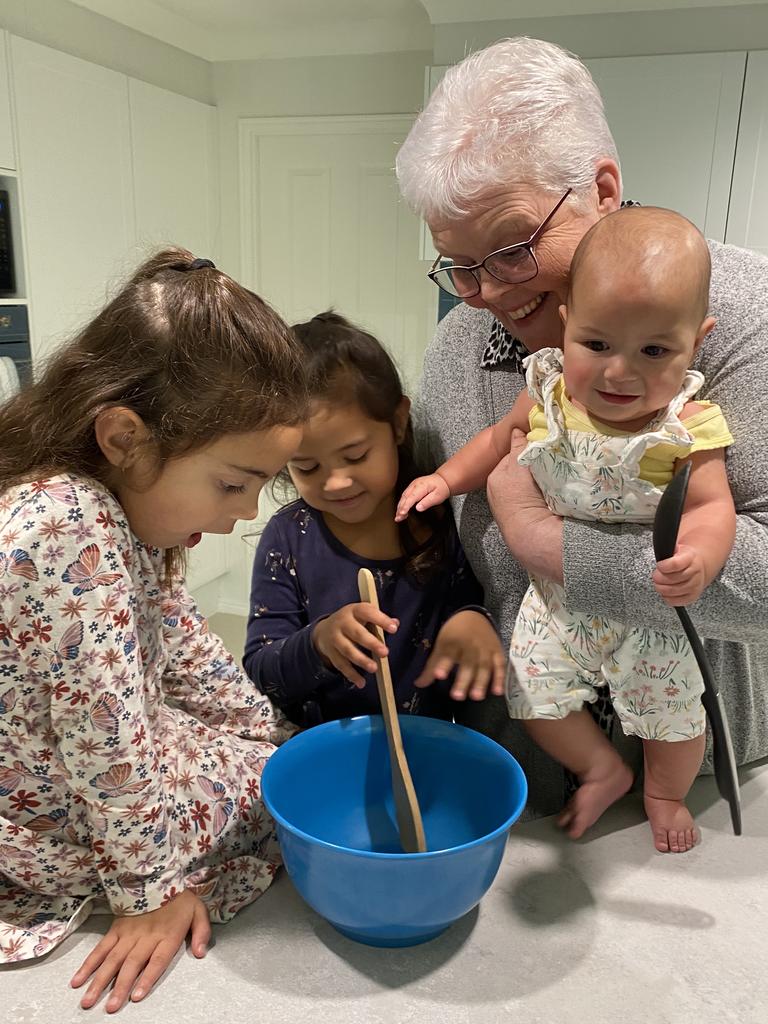
Her team’s research even suggests that when three to five-year-olds mix with older people, it may reduce their later delinquency* as teens.
“What we do know is it creates very good and strong relationships,” she said.
One-on-one time with an album or book seemed to work best.
“That’s the highest level of engagement* you can have: sitting with a child on your lap reading a book with them.,” Professor Fitzgerald said.
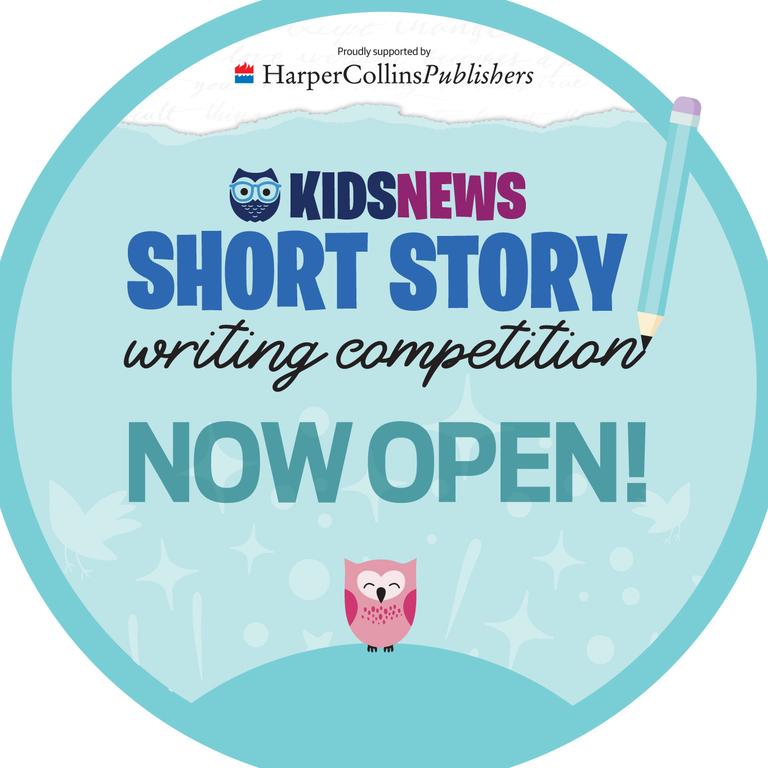
Such tactile*, visual elements add layers as a shared sensory* experience. Grandfather of five Riley Lee also said watching his wife Patricia share family stories with their grandkids gave him a wellbeing boost by proxy*.
“I get great pleasure listening to Patricia tell stories … about her childhood and watching how they listen to her with wonderful concentration,” he said.
One of those grandchildren, year 6 student Oskar Lee, 11, said his grandparents “use photos to describe the stories”, like their picture board with his mum holding a puppy and his aunt dressed as an astronaut.
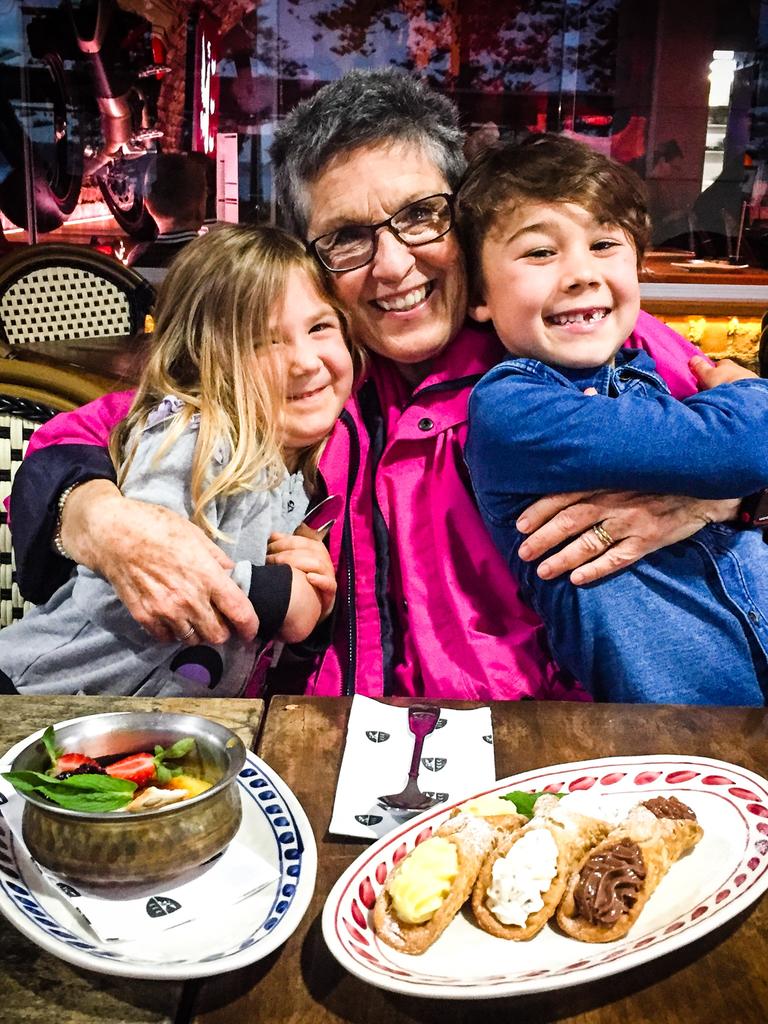
Funny, strange and suspenseful stories often succeeded in snagging his and nine-year-old sister Freja’s interest far more than morality tales, as when Oskar’s country-raised grandma was once followed home from school. Footsteps and eerie moaning close behind her turned out to be a snuffling pig – but the tale’s delicious mix of terror and trotters made it a family favourite.
Oskar said his grandparents’ interesting stories, “where something either bad or funny happens … helps me understand what it was like for them. I can piece together bits of their life that were similar to mine … and connect them somehow.”
Those childhood stories have also helped them all find and enjoy things they have in common.
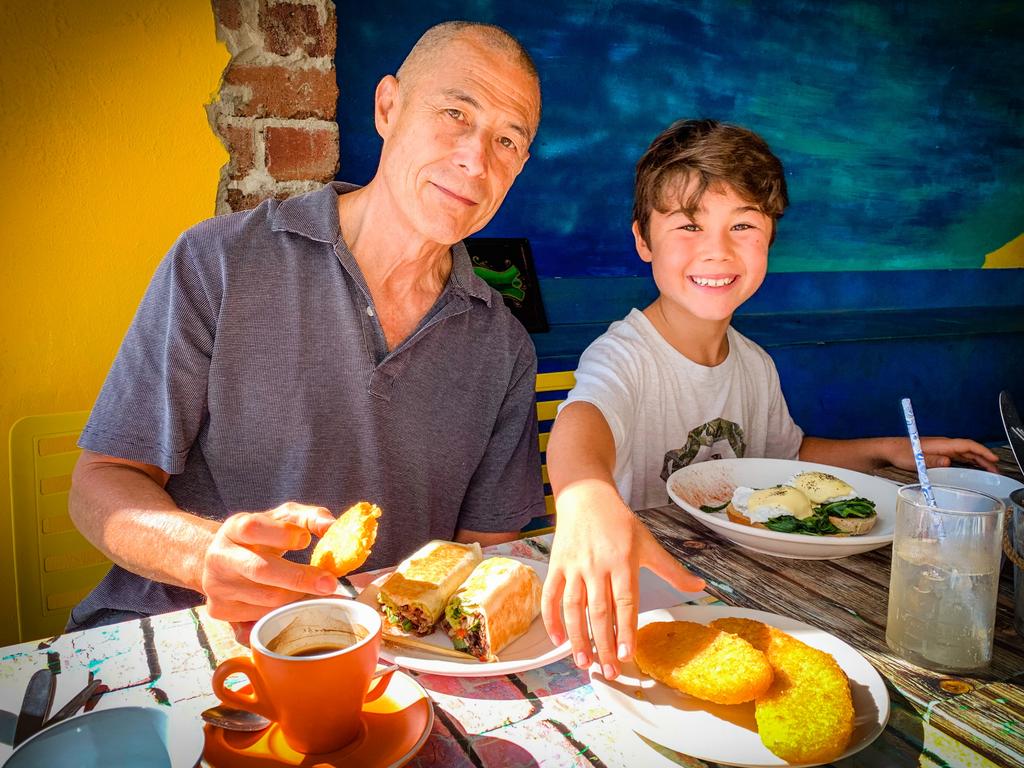
“My grandpa liked manga* when he was younger and he still does,” Oskar said. “I like manga, so one day he said, ‘Why don’t we go on a trip with your sister to the city to go to this big bookshop that sells lots of manga’ and so we did that and it was lots of fun.”
Some family tales even had the potential to help with homework and writing tasks.
“You can say, ‘Oh, I know all about that, that happened to my grandparents once’,” Oskar said. “You could be working on the World Wars … and maybe one of your ancestors fought in it when they were still alive and you can find out about that.”
The Kids News 2022 Short Story Competition is accepting entries until Friday 24 June. Click HERE for more information and to enter.
GLOSSARY
- intergenerational: involving different generations like child, parent and grandparent
- cognitive: refers to mental processes like thinking and reasoning
- decline: to go down in the amount of quality of something
- empathy: ability to imagine and consider someone else’s feelings and experiences
- delinquency: poor adolescent behaviour that may include breaking the law
- engagement: interest, attention, curiosity
- tactile: relating to the sense of touch, physical materials and textures
- sensory: refers to touch, smell, taste, hearing and sight
- proxy: substitute, replacement, stand-in
EXTRA READING
Last week to enter Short Story Comp
How social media can help your storytelling
Author inspired by family’s Holocaust story
QUICK QUIZ
- Australia’s ageing population is a huge opportunity for what?
- Professor Fitzgerald’s research suggests what might reduce delinquency in teens?
- What might be delayed by older people telling life stories to young people?
- What do Oskar Lee’s grandparents use to help them tell stories?
- What is something both Oskar and his grandpa like?
LISTEN TO THIS STORY
CLASSROOM ACTIVITIES
1. Multi-generational stories
Do you have older people in your life, like grandparents or friends, who have stories they’ve passed on to you?
Write the main points of one of their stories below, and share with your classmate next to you.
What do hearing these stories mean to you?
Would you like to speak to older people in your community, like an aged care facility, to learn more about older people and their lives?
Time: allow 25 minutes to complete this activity
Curriculum Links: English; Personal and Social; Critical and Creative Thinking
2. Extension
If you could connect with an older person, like a family member or someone in the community who might like some company, what would you say to them to start a conversation? Use some tips from the Kids News article to help you write some prompts to get to know each other.
Time: allow 15 minutes to complete this activity
Curriculum Links: English; Personal and Social; Critical and Creative Thinking
VCOP ACTIVITY
1. Summarise the article
A summary is a brief statement of the main points of something. It does not usually include extra detail or elaborate on the main points.
Use the 5W & H model to help you find the key points of this article. Read the article carefully to locate who and what this article is about, and where, when, why and how this is happening. Once you have located this information in the article, use it to write a paragraph that summarises the article.
Time: allow 25 minutes to complete this activity
Curriculum Links: English; Science

